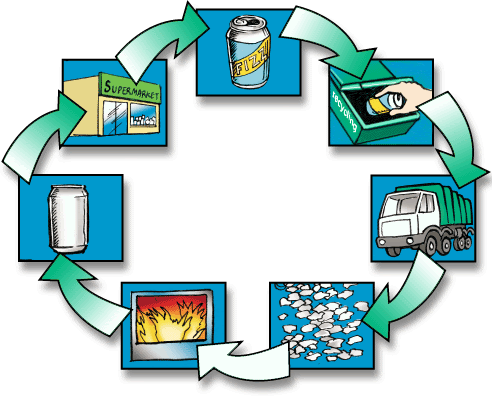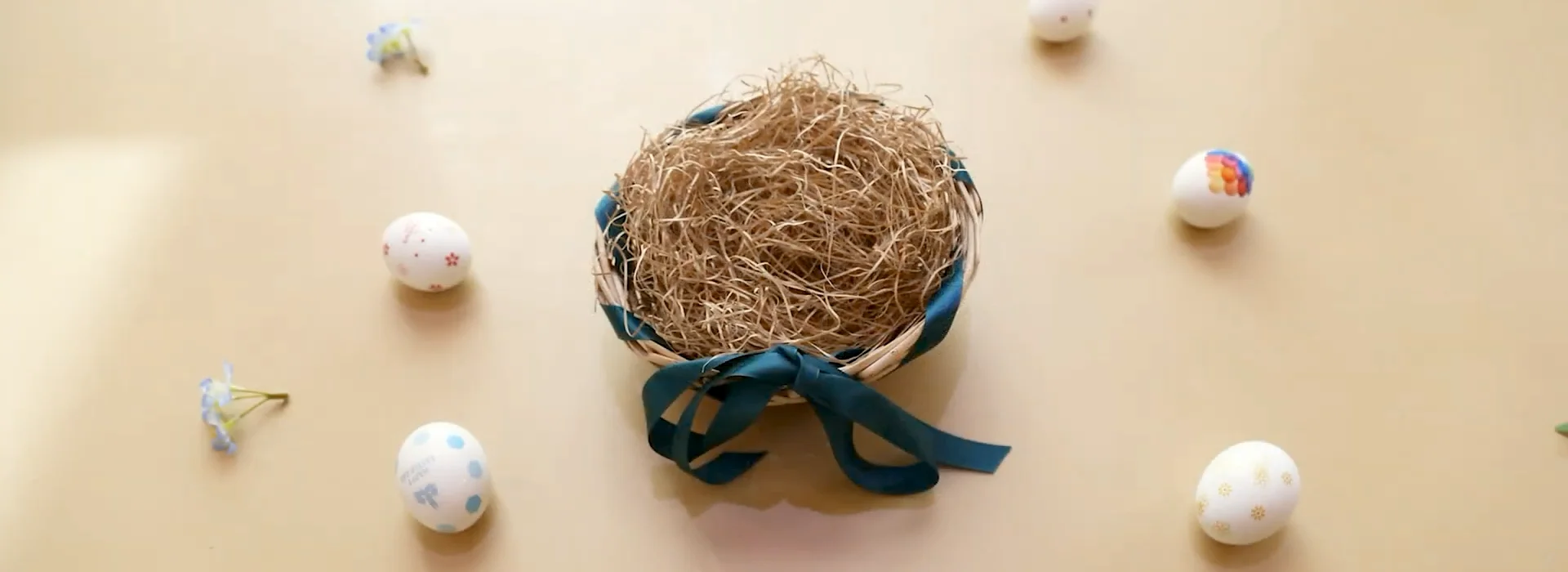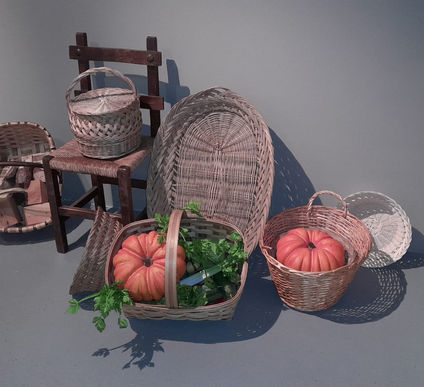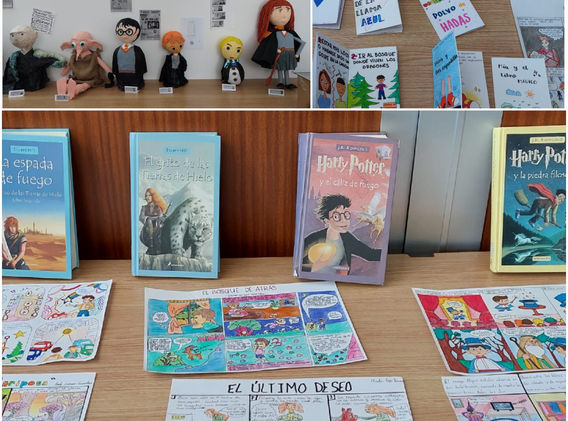
ERASMUS+ KA210 SMALL SCALE PARTNERSHIP


Local Activities
Finding Inspiration in Every Turn
The Whole Story of the Project
Local activities in Erasmus+ projects are integral to fostering cultural exchange and mutual understanding among participants. These activities typically include workshops, community events, and hands-on experiences in the host location. They often highlight local customs, historical sites, and unique cultural elements, allowing participants to immerse themselves in the host country's way of life. Additionally, local activities can involve environmental projects, like visiting natural reserves or participating in ecological initiatives, encouraging a deepened sense of environmental responsibility. Such engagements not only strengthen participants’ appreciation of local traditions but also promote the Erasmus+ values of cooperation, learning, and intercultural respect.

Exhibition in Gaziantep on Recycled Art: Creativity for a Sustainable Future
As part of our Reliable Erasmus+ project, which aims to nurture eco-literacy and environmental awareness, we recently organized an inspiring exhibition featuring art made from recycled materials. Students of Vali M. Lutfullah Bilgin Ortaokulu exhibited a diverse collection of artworks created from used or discarded items, showcasing their creativity while promoting sustainability.
This exhibition encouraged students to explore eco-friendly practices by repurposing waste into meaningful art. It provided them with a hands-on learning experience about recycling, fostering a deeper understanding of how everyday materials can be transformed into new and beautiful creations. The event aimed to inspire others to consider sustainable alternatives in their daily lives.
From sculptures and wall art to practical items, each piece showcased the students' talent and commitment to environmental values. The exhibition demonstrated how waste can be creatively repurposed, encouraging visitors to rethink their approach to everyday materials.
A heartfelt thank-you goes to our Technology and Design teachers, whose guidance and dedication were instrumental in making this exhibition a success. Their support and expertise inspired the students and played a crucial role in bringing this vision to life.
The exhibition was a rewarding experience, helping students develop artistic, resourceful, and eco-conscious skills. It also raised awareness within the school and community, sparking conversations on the benefits of recycling and sustainable living. We thank all students, teachers, and partners involved for their contributions. Together, we are taking meaningful steps toward building a more sustainable future.








October in „Constantin Noica” Highschool
Food waste and food loss, which happens when food is lost before it reaches consumers, is a global challenge. According to the Food and Agriculture Organization of the United Nations (FAO), approximately one-third of all food produced worldwide is lost or wasted at some point along the food supply chain.
In the EU, almost 59 million tonnes of food is wasted every year, which means 131 kg per person.
Therefore, the teaching staff proposed to organize an autumn fair consisting of an exhibition with tasting of some autumn products (fresh fruits and vegetables, prepared from them) and training the children in various activities in the school yard: outdoor games with non-polluting objects, recycling some products in the appropriate bins, cleaning the place after the end of the activity.
So, the 14 th of October was a beautiful day to celebrate.

A Presentation on Compost by Spanish Students
"Empowering Change: Spanish Students Disseminate Nidzica Insights"
Spanish 3rd year of Secondary Students shared their inspiring experiences from the recent Nidzica visit with fellow peers! They highlighted the importance of eco-literacy, learned about sustainable practices, and explored innovative environmental solutions. This peer-to-peer exchange is a vital part of our Erasmus+ 'Reliable' project, helping to spread awareness and foster a more eco-conscious generation.



"Let's talk about global warming!"
Today, September 27, the activity took place within the project "LET'S TALK ABOUT GLOBAL WARMING!", implemented by the INTERAKT ARTS ASSOCIATION.
The generic character, called the CAPCCAUN (who stole the seasons and hid them somewhere far away, in his cellar), visited the 2nd A and 2nd C classes at the Theoretical High School "Constantin Noica" Sibiu, coordinated by primary teacher Jugar Gabriela, Muntean-Cioplea Daniela




Work in our Ecocorner
Students of ZSZiO in Nidzica are actively involved in the work on our ecological and botanical project. This is the first year that we have a place to rest at school, for outdoor lessons combined with observing nature.
In order for the garden to function all the time, it must be taken care of. And so we do. The youth are willing to help and work on the aesthetics of our school greenery. Now in autumn we have a lot of work. We have to prepare the plants for frost, precipitation, etc.
We are glad that today's youth are so willing to help.
Our botanical garden
A botanical garden has been created at our school. Like every living organism, plants have their own needs to be pleasing to the eye for several years.
The youth of ZSZiO very energetically joined in the work on the garden. Thanks to the initiative of students from class 2 LOW, our botanical garden was enriched with a composter, which the students built themselves. Class 3 LOW made the waste bins themselves, which were placed by the benches.
We are glad that we can boast such active and full of enthusiasm and ideas young people. This is really valuable nowadays.
Our "Green corner" will grow in the future, enriched with more seedlings of flowering plants and shrubs. The composter will allow us to go eco on an even larger scale because thanks to it we will obtain natural fertilizer.






Spanish students at Santa María La Nueva and San José Artesano High School have completed a workshop in their Biology class researching the process of composting garden waste at school. As a week long project they have also been researching the successes and challenges of our new City of Burgos organic waste collection programme. To finish they have carried out an advertising campaign.
Composting





Eco-Conscious Traditional Games Day
Our recent Traditional Games Day was more than just a fun event—it was an opportunity to connect our cultural heritage with eco-friendly practices. By reimagining classic games with a sustainability focus, students engaged in activities that honored tradition while promoting environmental awareness.
Participants enjoyed a variety of games, each with an eco-conscious twist: relay races with recycled materials, nature-themed scavenger hunts, and recycling challenges that demonstrated the importance of waste sorting. Every game not only entertained but also inspired students to think about the environment and sustainable choices.
This event perfectly embodies our project's mission: to raise a new generation of eco-literate individuals who are connected to their cultural roots and committed to protecting the planet.



PRESERVING CULTURAL AND TRADITIONAL LANDSCAPES
In November several groups of 12 and 13 year-old students from Santa María La Nueva y San José Artesano have visited an exhibition in Burgos organized by three associations of the city of Burgos: Círculo, Ibercaja and The Oxygen Association.
They have taken part in interesting and motivating workshops learning about our cultural heritage: traditions, folklore, songs, typical dances, traditional costumes..... The scientific, cultural, touristic and economic resources of our area have also been highlighted and special emphasis given to promoting the preservation and enhancement of our natural and rural heritage into the future.
Through appreciation of the past and of today´s natural landscapes, we aim to educate young people to be sensitive to the need of protecting the wealth of cultural and natural resources in our region and securing a healthy and safe future for us all!
ENVIRONMENTALLY-FRIENDLY SEASON GREETINGS
In keeping with our RELIABLE Erasmus+ project, our students have used recycled materials this week to design their Christmas greeting cards which they have handed personally to residents in local homes for the elderly. It is both fun and rewarding to see how through simple gestures towards our elders and by promoting practices with minimum impact on our environment, we can bring great joy and a sense of contentment at a time of year when sharing and caring is especially in our minds!






NEW YEAR RESOLUTION POSTERS
Our students at Santa María La Nueva y San José Artesano, Burgos, Spain, have been using both their linguistic and IT skills this month to produce RELIABLE New Year Resolution 2025 posters. In class they have studied ways in which, by making small changes in their everyday life, they can contribute towards a more sustainable and greener future. The students have enjoyed using their skills and in producing some really great work. We will look forward to seeing how well they have kept their promises later in the year!

NEW YEAR RESOLUTION POSTERS
Mobile phones play a huge part in our lives and especially in the lives of young people. How could we ever live without them?
This month our students have been challenged to ask themselves this question and more importantly to understand the negative impact of mobile phones on the environment. They have been researching the different chemical compounds that go into the manufacturing of these devices with a special focus on coltrain and its environmental and social hazards. They have also been learning about the risks and the negative environmental impact of the improper recycling of millions of disregarded mobile phones each year.




WATER
To coincide with World Water Day on 22 March, our 1st Year of Secondary School students have been doing a project centered on the importance of water on the planet and looking at how Spain tries to offer solutions so that there is a reliable supply of water in all parts of the country. Spain is a country of contrasts with an excess of water in some parts and water shortages in others. Water transfers are just one of the ways in which our country tries to alleviate the above problem.
Through working on this project students have reflected not only on the problems that the world faces with regard to water supplies but have also become more aware of the need to reduce water consumption and to use water supplies responsibly.

Breathing New Life into Waste:
Erasmus+ Workshop on Ecology and Recycling
As part of the Erasmus+ project, together with young people from the ZSZiO, we participated in an inspiring and educational workshop focused on ecology, recycling, and the creative reuse of materials that would otherwise be discarded. This hands-on experience allowed us to explore innovative ways to reduce waste by transforming everyday objects into new and functional items, giving them a second life.
Through engaging activities, we learned about the environmental impact of waste and the importance of sustainable practices in our daily lives. Participants worked collaboratively, exchanging ideas and developing creative solutions to repurpose discarded materials into useful products, proving that sustainability and creativity go hand in hand.
The workshop not only raised awareness about the significance of recycling but also encouraged young people to adopt eco-friendly habits and think critically about consumption and waste management. By the end of the session, we had not only created unique and practical items but also strengthened our commitment to a greener, more sustainable future.

World Water Day: Addressing Water Challenges in Spain

To coincide with World Water Day on 22 March, students have been actively engaged in various projects exploring the critical issue of water distribution in Spain. They have examined both the challenges posed by water scarcity in some regions and the problems caused by excess water in others, highlighting the stark contrast in water availability across the country.
Through their research, students have delved into the concept of water transfers, a key strategy used in Spain to redistribute water from areas with surplus to those facing drought conditions. They have explored how these transfers work, their benefits in sustaining agriculture and communities, and the environmental and social impacts they may have.
By studying real-life examples, students have gained a deeper understanding of how climate, geography, and human activities shape water distribution. Their projects emphasize the importance of sustainable water management and encourage discussions on innovative solutions to ensure fair and efficient use of this vital resource.
As part of their work, students have also engaged in discussions, case studies, and creative presentations to raise awareness about water conservation and the role everyone plays in protecting this essential resource. World Water Day serves as a reminder of the need for collective action to address global water challenges and promote a more sustainable future.
Repurposing at Easter!
In our English class students have learnt about Easter traditions in the UK including the significance of eating hot cross buns on Good Friday, about different egg related traditions over the Easter period such as egg painting, eggs hunts, egg rolling and of course the eating of eggs on Easter Sunday to celebrate the resurrection of Christ. Today we share some photos of our class activity. First we learnt how to blow eggs and then we had fun painting them all together. Learning, repurposing and making beautiful things from simple disregarded materials! Happy Easter to all our Erasmus+ RELIABLE friends and followers!





A Magical Tribute to Literature: Celebrating World Book Day
Students have dedicated countless hours of creativity, imagination, and careful craftsmanship to producing these remarkable paper mache figures, each representing some of our most beloved literary characters from both classic and modern works. Through a combination of artistic skill, patience, and passion for storytelling, they have brought to life figures that have captured readers’ hearts for generations. These vibrant and detailed sculptures now stand proudly on display as part of our school's enchanting Harry Potter-themed exhibition, created especially to celebrate World Book Day on 23 April.
This special event not only showcases the students' artistic talents but also highlights their deep appreciation for literature and the worlds it opens. In addition to the paper mache figures, visitors can explore an inspiring collection of handwritten comic strips and beautifully crafted mini storybooks, each telling original tales or offering imaginative reinterpretations of well-known stories. Every piece displayed reflects the students' individual creativity, hard work, and love of reading. Together, these artistic projects transform our school into a vibrant world of magic, adventure, and literary wonder, inviting all who attend to rediscover the joy and power of storytelling.
Europe Day
To celebrate EUROPE DAY on the 9TH MAY students in their English classes have chosen and researched information on a European country of their choice. They have then shared their findings with an oral presentation in English in front of their classmates. 👏👏👏
Happy Europe Day! Without it we would not be working together on our wonderful RELIABLE Erasmus+ project!




STUDENTS DEBATE - KYOTO PROTOCOL

Today students of our 2ºESO BILINGUAL class have held a DEBATE in English in collaboration between the science and English departments on the topic of the Kyoto protocol. They have argued for and against the measures agreed to in this international agreement to reduce greenhouse gases and combat climate change. Students have taken on the roles of important players in this mission including representatives of developing and developed countries, leading economic multinationals and environmental agencies. In turn they have argued their own positions. The clear conclusion of this debate has been a better understanding of the complexities and challenges of adheering to the protocol decisions but equally important of the need to work together so that we can secure a better future for our planet.

In the same way as in October and March after mobilities to Nidzica, Poland and Sibiu, Romania when students shared their experiences with classmates and other school mates, students who have recently come back from Gaziantep, Turkey have done the same. To finish off our school term, some of our ERASMUS+ RELIABLE students have also given an interview for our school radio talking about their personal experiences.
To listen to them speak and to see how much they have learnt, enjoyed and grown is truly inspiring and makes us grateful for the unique opportunities that Erasmus projects afford us.



HANDMADE WORKSHOP
A creative, hands-on session where participants explore different crafting techniques and make their own personalized items. The workshop encourages imagination, fine-motor skills, collaboration, and self-expression. All materials are provided, and participants leave with a beautiful handmade creation and new skills they can continue using at home.

1 st December- National Day
National Day at my school is always a memorable and meaningful celebration. The day begins with a special assembly where students and teachers gather to honor the history and achievements of our nation. The event usually starts with the flag-raising ceremony, followed by the national anthem, which fills everyone with pride. Our principal then delivers a speech reminding us of the importance of unity, responsibility, and love for our country.
Students present patriotic songs, cultural dances, and short dramas that highlight important moments from our nation’s past. Classrooms and hallways are decorated with national colors, posters, and creative artwork made by the students. Competitions such as essay writing, poster making, and quizzes add excitement to the day.
Celebrating National Day at school teaches us to respect our heritage and appreciate the sacrifices that shaped our country. It is not just a holiday—it is a reminder of who we are and the shared values that bring us together





The days of commemoration of Constantin Noica
The 9th grade students, coordinated by Professor Cristina Husariu, imagined symbols, people, places and words that bring them closer. An exercise in identity, community and joy.

Our school radio
-
at Radio N Voice we promoted all the activities in the school, we briefly presented the mobilities carried out within the Erasmus RELIABLE Project
-
at Radio N Voice, the five teams promoted nonviolence by inviting school colleagues from primary, secondary and high school, as well as the school counselor, Monica Decean. The invited students presented the activities they carried out within the COURAGE THROUGH WORDS project and thematic creations they made, under the coordination of the teachers.





The international Juvenes Translatores competition
The international Juvenes Translatores competition organized by the European Commission on November 27, 2025, was an opportunity for 5 of our high school students, born in 2008, to translate texts from or into English, French or German. We congratulate them for their interest and passion for studying European languages!
ANNELI BĂCILĂ - XI Betania
SEBASTIAN SDROBIȘ - XI Betania
IOANA CAMELIA PELEȘ - XI B philology
ANDRA ELENA OPRICA - XI B philology
ANDREEA TEODORA POPA - XI B philology
Congratulations also to the organizing and guiding teachers!



“The Conscious (Eco) Consumer”
At the Complex of Vocational and General Education Schools in Nidzica, the School Career Day took place 💼📊
It was an event that showed that school is not only about theory, but also about real skills for the future.
Students participating in the project “The Conscious (Eco) Consumer” presented their award-winning projects to the entire school community. Their ideas, analyses, and practical solutions clearly demonstrated that young people can successfully combine economic, digital, and environmental knowledge with real challenges of the labor market 🌱📈
In the next part of the event, students were given the task of preparing a lunch for a diabetic, an athlete before a competition, and a person suffering from celiac disease. Their task was to find in local stores products labeled as healthy, high in protein, gluten-free, lactose-free, as well as hypoallergenic cosmetics.
This time, students presented the results of their research, and there was no shortage of ideas and concepts promoting a healthy lifestyle.
Such initiatives build the reputation of our school, develop students’ passions, and show that at ZSZiO in Nidzica we teach in a modern, practical way, with the future in mind 🚀
The project is a space where students can test themselves in practice, showcase their skills, and gain confidence in their abilities.









🌍✨ Dissemination of the Erasmus+ Project “RELIABLE” ✨🌍
As part of the dissemination of the results of the Erasmus+ project “RELIABLE”, during a teachers’ meeting, students participating in the project prepared a presentation and shared their experiences. They talked about the project itself, the activities carried out both locally and during international mobilities, as well as the benefits of taking part in Erasmus+ projects 🌐📚✈️
They also highlighted the importance of environmental awareness in today’s world and the role young people play in building a more sustainable future 🌱♻️
Such meetings are a great opportunity to spread knowledge, inspire others, and promote European values 💚🇪🇺


The project “Healthy Lifestyle – a Choice for Life”
aims to deepen students’ knowledge of consciously shaping their own health through the analysis of products that surround us and by making informed lifestyle decisions. It is an interdisciplinary project that combines elements of biology, chemistry, social studies, and practical skills.
The main objective of the project is to equip participants with tools that enable a critical evaluation of information found on product labels. In the first phase of the project, students will focus on analyzing food ingredients. They will examine the labels of popular food products, identifying and classifying ingredients, including food additives (E-numbers), hidden sugars, saturated fats, and artificial preservatives. The goal is to understand how to read nutrition facts tables and how this information translates into everyday dietary choices.
The second part of the project focuses on the analysis of clothing labels. Students will examine textile materials (e.g. cotton, polyester, wool, synthetic fibers), their impact on the skin (e.g. allergy issues and breathability), as well as ecological and ethical aspects related to clothing production (e.g. the impact of pesticides used in cotton cultivation).
The most important element of the project is the practical application of the acquired knowledge through the development of personalized dietary recommendations. Working in groups, students will create detailed diet plans tailored to diverse personal profiles. Example target groups include:
Children and school-age youth: Caloric needs and nutrients supporting physical development and cognitive functions.
Adults with a sedentary lifestyle: Diets that help maintain a healthy body weight and prevent lifestyle-related diseases.
Older adults: Balanced meals that take into account metabolic changes and the need for specific micronutrients, such as calcium and vitamin D.
Physically active individuals (amateur athletes): Nutrition plans optimizing recovery and performance, with appropriate intake of protein and complex carbohydrates.
As part of the project summary, students will present their analyses and developed diet plans, justifying their nutritional choices based on scientific principles and label analysis. The project aims to reinforce the belief that a healthy lifestyle is a conscious, continuous process of making the best choices for one’s own body.
We are ALL

























